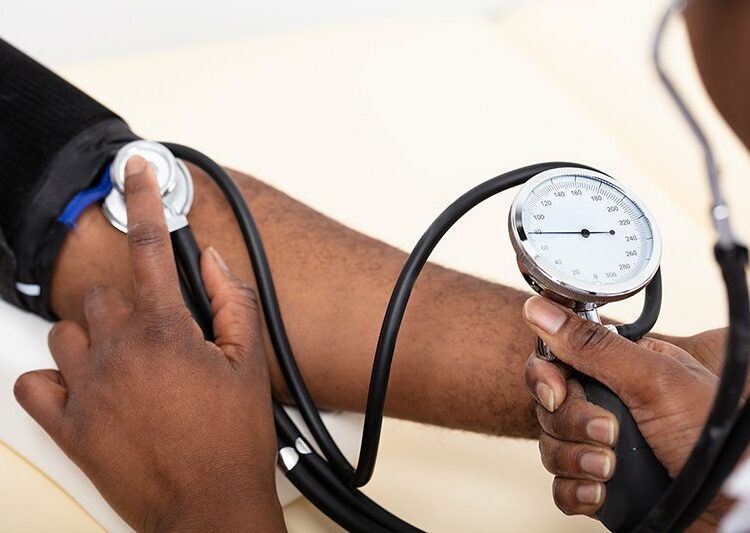Hypertension, commonly known as high blood pressure, is a silent but deadly health threat in Nigeria. With an estimated prevalence of over 30 per cent among adults, it remains one of the leading risk factors for heart disease, stroke, kidney failure, and premature death.
Alarmingly, many Nigerians living with hypertension are unaware of their condition, underscoring a critical gap in public health awareness and preventive care.
Despite the growing burden of hypertension, awareness levels remain low. A significant proportion of Nigerians, especially in rural areas, do not undergo regular blood pressure checks. Cultural beliefs, misinformation, and limited access to healthcare facilities contribute to underdiagnosis.
In many cases, hypertension is only discovered after life-threatening complications occur.
According to statistics, over 27.5 million Nigerians are currently living with hypertension. Prevalence rates range between 22 to 44 per cent, making the condition one of the most pervasive health challenges in the country.
Despite the enormity of the issue, many Nigerians remain unaware of their condition. According to the President of the Nigerian Hypertension Society, Professor Simeon Isezuo, one in three adults in Nigeria has hypertension, but most are unaware until significant damage has been done to the heart, kidneys, or brain. Even among those diagnosed, many are either not on treatment or do not adhere to prescribed medication, making control difficult and complications more likely.
“Hypertension has no symptoms until serious damage has occurred. It is the leading cause of stroke, heart failure, chronic kidney disease, and heart attacks,” Prof. Isezuo warned.
The World Health Organisation (WHO) emphasised that while not all diseases are preventable, the majority of premature deaths from cardiovascular conditions can be avoided through lifestyle changes, stating that a healthy lifestyle, comprising a balanced diet, regular exercise, and avoidance of tobacco and excessive alcohol, lowers the risk significantly.
The Coordinating Minister of Health and Social Welfare, Prof. Ali Pate, urged Nigerians to “Engage in at least 30 minutes of daily physical activity, avoid smoking and alcohol, eat more fruits and vegetables, and know your numbers—check your blood pressure regularly.”
Prof. Pate also discouraged self-medication and advised against halting treatment without medical consultation, a common but dangerous trend among patients.
Speaking on the effect of excessive salt consumption, Special Adviser to the President on Health, Dr. Salma Anas Ibrahim, revealed that many Nigerians consume far more than the WHO’s recommended five grams of salt daily.
She said, “Reducing dietary sodium by 30 per cent over five years can dramatically reduce hypertension-related complications.”
She emphasised the need for healthier eating habits, including increased consumption of fresh fruits and vegetables, use of alternative seasonings, and reduced reliance on processed foods.
From individual households to national policy level, the message is clear: Hypertension is preventable and treatable, but only if detected early and managed properly.
The future of hypertension control in the country lies in collective action, through healthier lifestyles, affordable care, public education, and sustained government policy.
We’ve got the edge. Get real-time reports, breaking scoops, and exclusive angles delivered straight to your phone. Don’t settle for stale news. Join LEADERSHIP NEWS on WhatsApp for 24/7 updates →
Join Our WhatsApp Channel










